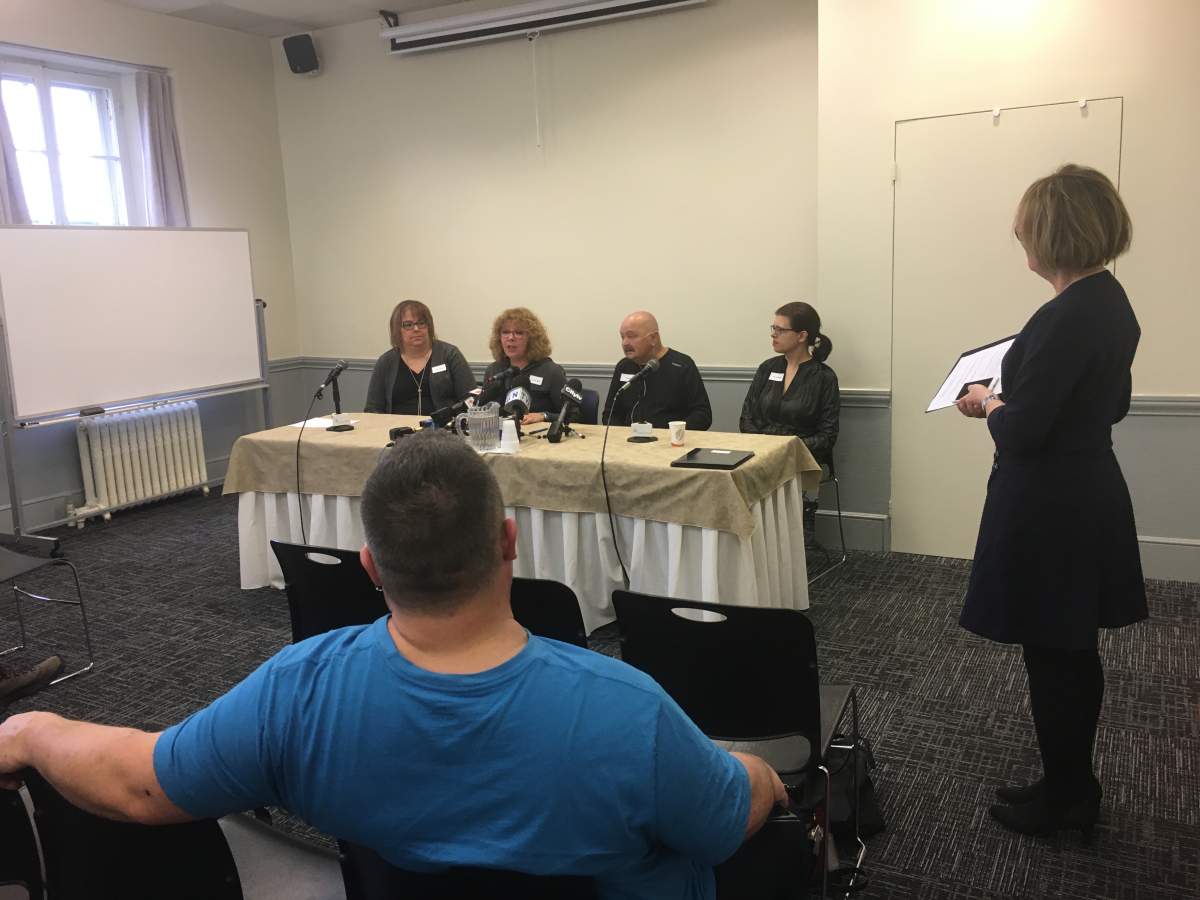A fight is brewing between Quebec’s general practitioners and their union, leaving palliative care patients stuck in the middle.

The Federation des médecins omnipraticiens du Quebec (FMOQ) and the province signed an agreement in March to create 68 palliative home care units in the province.
But nine months later, there is only one unit on the ground, meaning many Quebecers are being denied the right to die at home.
“The majority of patients in palliative care wish to stay at home and actually, in the Quebec province, they are robbed from this right,” said Dr. Genevieve Dechène, who runs the province’s only palliative home care unit in Verdun.
READ MORE: West Island Palliative Care Residence to honour Teresa Dellar’s memory
“I am one of the lucky ones,” said terminally-ill patient Raymond Duranceau.
“I’d like for the others to get the same thing.”
The Quebec coalition for access to palliative care blames the FMOQ for blocking the development of the medical teams at home.

Get weekly health news
“This is totally unacceptable,” said Dechène, who claims the union is putting physicians’ financial interests first.
A group of physicians, patients and caregivers teamed up at a news conference on Tuesday to speak out against the FMOQ, but its president believes their grievances should be redirected to the health minister.
“To say that the federation is blocking the recommendation of new teams, it’s completely false, it’s not true,” said FMOQ president Dr. Louis Godin, who claims he’s been waiting for the minister to modify the agreement for nine months.
“At this moment, the agreement doesn’t correspond to the situation,” Godin said.

Health minister Danielle McCann insists she’s working hard to address the FMOQ’s concerns and hopes to find a solution when both sides meet next week.
“We want those teams to be put together everywhere in Quebec and we’re going to do it as fast as possible,” said McCann.
READ MORE: New West Island-based initiative to improve palliative care across Canada launched
Meanwhile, many physicians continue to treat palliative patients at home, free of charge.
“I find it extremely frustrating that the population doesn’t have access to services that they’re entitled to have just because of politics,” said Dr. Mélanie Berthiaume who works at the CLSC de Saint-Louis-du-Parc.
“I’m not going to stop working for our population because I’m not being paid. This is an essential service and I went into medicine to provide that.”
All sides agree that increasing access to palliative care at home will lessen the financial burden on the health care system by reducing the number of terminally-ill patients who end up in the emergency room. More importantly, it reduces the emotional burden for patients and their loved ones.
Duranceau was told he had only five months to live when he was diagnosed with cancer in January, 2018. He’s convinced he’s still alive thanks to the personalized care he’s received by Dr. Dechène and her team.
“I wouldn’t want to fight anymore. I’ve been fighting with this cancer for a long time and it’s hard.”









Comments
Want to discuss? Please read our Commenting Policy first.